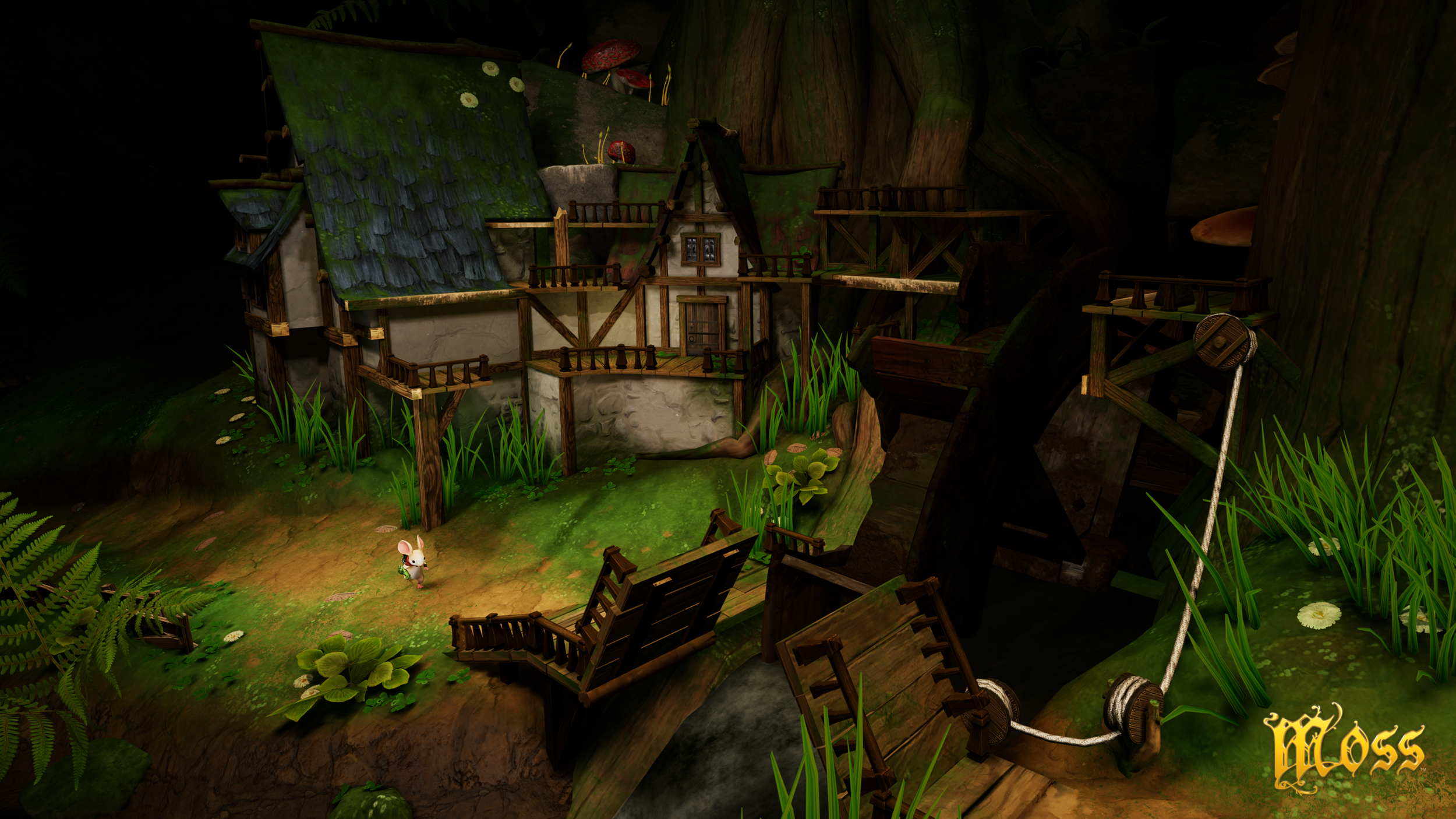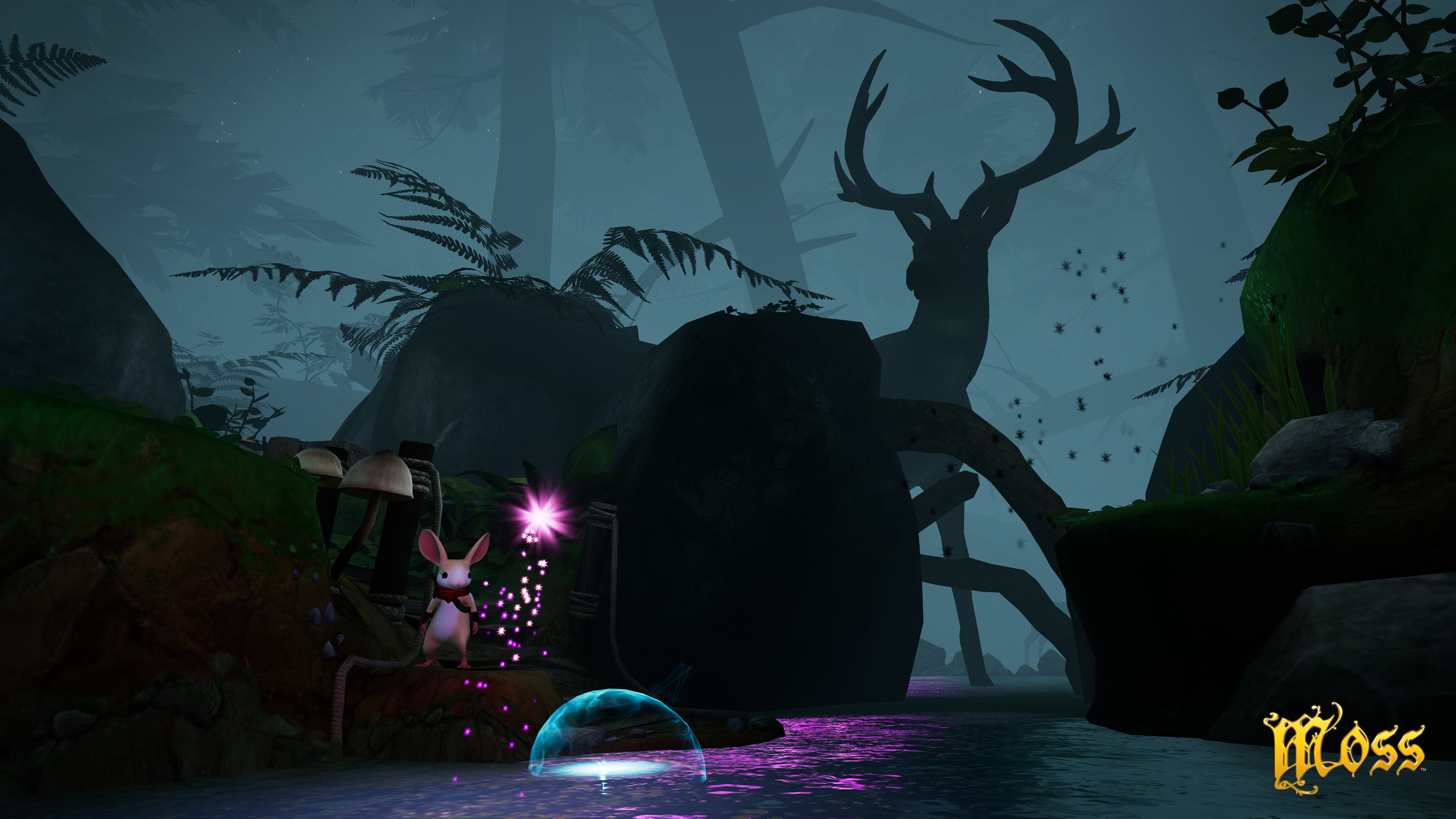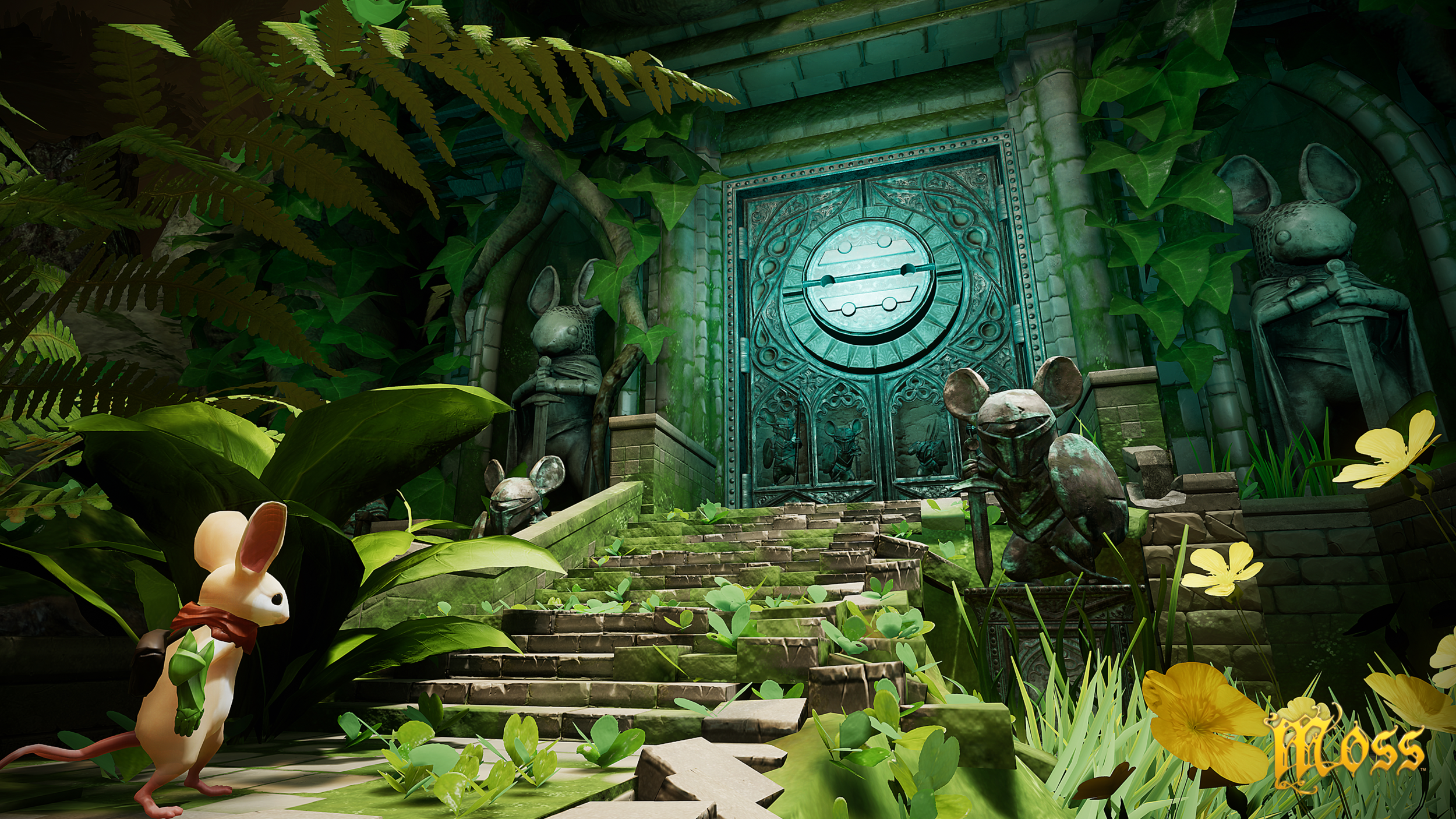Moss is the single cutest game I have ever played.
I was not prepared for just how small Quill is. Yes, Moss’s protagonist is a mouse, but until you put the VR headset on it’s difficult to comprehend what that really means.
The game, recognising the unique mechanical opportunities provided to it by virtual reality, casts you as a human-sized helper, looking down on Quill’s tiny world. Though you do control her, you also embody the “Reader”, who can grab objects and enemies from within the level. By moving your head and your hands, you interact with each beautiful, detailed diorama, thereby guiding Quill on her journey.

This sense of scale, then, isn’t only a quirk of the fact that this is a VR game (though I’m still not past the stage of wanting to reach out and touch things from virtual reality). Instead, it’s an integral part of the experience. Peering around corners will reveal collectibles; reaching out for blocks will allow you to open up platforming paths; grabbing and manipulating enemies can solve puzzles or aid Quill in combat. It’s a mechanic that only works because Moss understands that VR makes you present in the game in a way that you aren’t in traditional games – and it ties that into everything from mechanics to story.
A Silent Helper
Quill herself knows you are there, and you can touch her, too. Doing so can heal any injury she may have taken, or, if she’s fine, counts as a kind of petting. Quill will lean into you with a satisfied expression, and you can feel her heartbeat in the controller. Did I mention that this game is adorable?

That ghostly face is you, just in case you ever wanted to star in a Studio Ghibli film
Though she is tiny, and without the ability to speak, Quill’s animations relay incredible amounts of information and personality. Asking her to jump up from a ledge where there is nothing to grab will elicit a shrug; getting stuck on a puzzle will lead her to hint at the solution with charade and sound effect; succeeding will lead her to ask for a high five.
There are even moments where Quill uses American Sign Language. One of these is a key emotional crescendo, and though the game has excellent narration throughout, seeing her directly communicate, beyond her usual miming, is special.
Fantasy storybook
Said crescendo is part of a standard fantasy story that is often doled out by placing the player in a grand cathedral, literal storybook in front of them. Turning the pages leads to narration and little two dimensional pictures of Quill and the other characters move about on the page.
It’s a clever way to pack in the narrative, but falls flat compared to the tangible world laid out before you in between these sections. I don’t especially remember the intricacies of the story beyond the fantasy premise and Quill’s personal journey to find her uncle. It simply wasn’t as captivating as the plants and tiny statues and picture perfect miniature houses that actually kept me engaged with the world.

The story also ends very abruptly. After a brief section in which you suddenly need to make very quick, accurate jumps – something that isn’t necessary in any other areas and isn’t always made easy by the imprecise way that Quill moves – Moss suddenly decides that it’s over, albeit with a tease that Quill has more adventures to come.
It’s not necessarily that I wish it were longer; more that it feels like the first instalment in an episodic game, as though two more four-hour chunks will drop in the next couple of months. Perhaps there will be a sequel, but as it stands now it leaves a sense of open ended unsatisfaction.
Interactive toy box
Yet it wasn’t the story that drew me into Moss, it was the world and the way it placed me in it. Every detail, from sorrel on the ground to looming, deadly sentries overhead, remembered that I was a character within the story, and it allowed me to get involved like a child with four arms tinkering with a favourite doll’s house.

It’s in this way that Moss captures the imagination, turning each scene into something not only beautiful but also tangible.
And Quill really is the cutest possible character.

Pros
- Extremely, extremely cute.
- Makes smart use of the player and their VR setup
- Clever combat and puzzle possibilities
- Excellent voiceover narration
Cons
- Brief rough platforming sections
- Abrupt ending
Conclusion
Moss is a wonderful game for anyone who’s made the PSVR investment. Though it is suddenly over, the few hours that it runs are consistently cleverly engrossing, stunningly beautiful, and utterly adorable.



